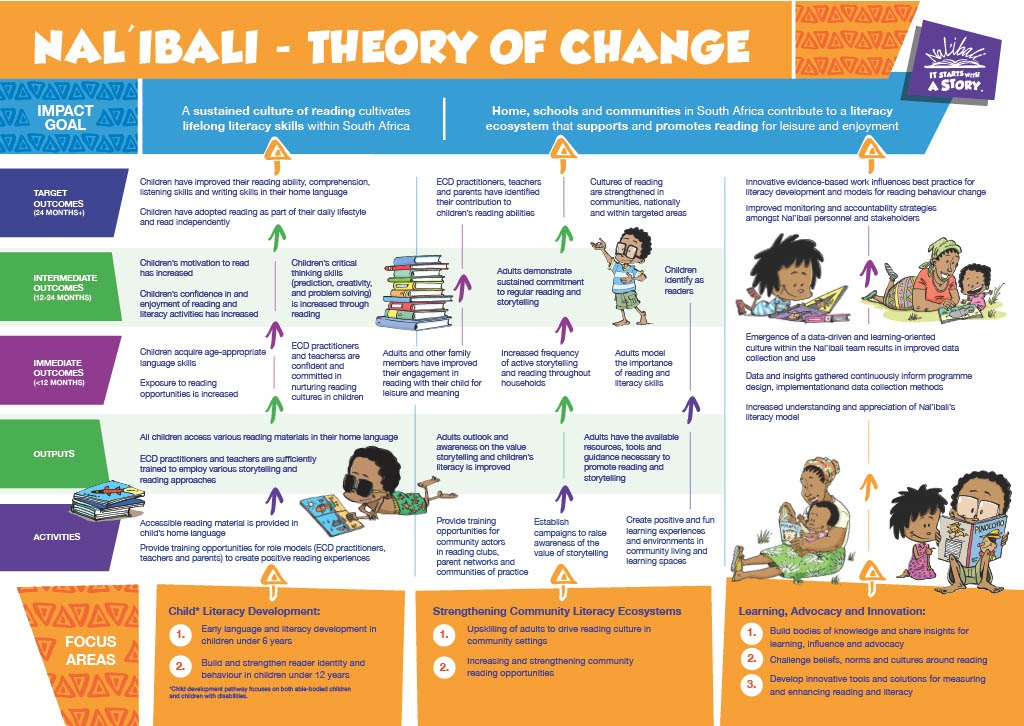Storybook reading and storytelling benefit children both cognitively and emotionally. Cognitively, story book reading, and storytelling make a critical contribution to developing literacy through building vocabulary and reading for meaning (Hart & Risley, 2003). A robust vocabulary improves all areas of communication — listening, speaking, reading and writing.
- Vocabulary growth is directly related to school achievement even in subjects not based on written text
- The size of a child’s vocabulary at the start of school predicts the ability to learn to read
- Vocabulary helps children to think, problem solve and learn about the world
- Expanding a child’s knowledge of words provides unlimited access to new information (JCFS Chicago, Hart & Risley, 2003)
Children in low-income families, with uneducated parents, in a home with more than 25 books, are more likely to gain two more years of schooling than children in homes with no books. (Evans, Kelly, Sikora & Treiman, 2010). Such homes are equipped with books, and adults willing to demonstrate the value of written text, reading to children regularly, listening to, telling and making up stories. A literary cultured home doesn’t need adults to be literate.
Emotionally, storybook reading and storytelling in a safe, familial environment promotes family cohesion and intimacy, boosting children’s self-esteem and contributing to them becoming confident students (Hoyne & Egan, 2019). Deep discussion of the texts and expressing emotional reactions to the turns of the story, develops children’s empathy and ability to self-regulate (Aram & Shapira, 2012). Story books expose children to social situations, introducing moral dilemmas, relationships, conflicts and problem solving through characters (Fine, Aram & Ziv, 2011). Social-emotional skills at an early age predict positive adult outcomes include good mental health, low chance of substance abuse and higher chance of employment. (Mahasneh, Raomanowki & Dajani, 2017).

